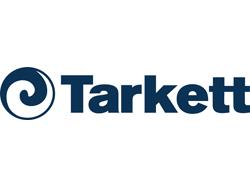Tarkett Launches New Strategy to Reduce Carbon Without Offsets
Solon, OH, September 6, 2022--Tarkett North America announces a new carbon strategy that will ultimately make real changes in how the company makes its floors, reducing impact rather than offsetting it.
Earlier this year, Tarkett announced its Climate Roadmap for 2030, which includes a commitment to reduce greenhouse gas emissions by 30% across its entire value chain by 2030-in full alignment with the Paris Climate Agreement objective to limit global warming to 1.5°C. To provide full visibility into these efforts, Tarkett has been evaluated and assessed by the independent organization Science Based Targets (SBTi) to confirm its reduction targets, which includes emissions from its own activities (Scope 1) and its purchased energy (Scope 2)-as well as those arising from the rest of its value chain, from suppliers to end customers (Scope 3).
Over the last decade, Tarkett has reduced greenhouse gas emissions by 38% (Scope 1 and 2) through a combination of renewable electricity, closed-loop water systems, and the responsible sourcing of raw materials, and is now accelerating that progress under the 2030 Climate Roadmap. The company has recently achieved a B score by CDP, representing the second highest level of maturity a company can reach at the world’s leading climate performance platform.
By the end of September, Tarkett North America (TNA) will have completed detailed life cycle analyses (LCAs) on its entire TNA product line. By taking this approach, the company can identify-and resolve-the root issues of what ingredients and processes are contributing to each product’s carbon footprint.
“The purchase of carbon offsets has allowed Tarkett North America to contribute to several important projects throughout the world, but it’s not an adequate long-term solution for Net Zero carbon,” said said Roxane Spears, vice president, sustainability, Tarkett North America. “Often, companies think of the carbon neutrality box as having been checked. Though in reality, there’s still so much more work to be done to actually reduce impact versus simply offsetting impact.”
Related Topics:Tarkett
